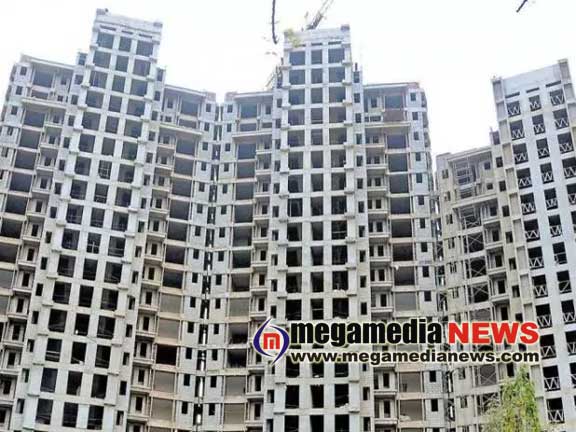Note ban, GST hits residential launches in Bengaluru by 67%
2:23 PM, Tuesday, December 12th, 2017Bangaluru:  Bangaluru: The demonetisation of high value notes, roll-out of the Goods and Services Tax (GST) and RERA, have drastically impacted the housing market in Bengaluru as the number of of new launches has drastically dropped 66.7% during the first three quarters of 2017.
Bangaluru: The demonetisation of high value notes, roll-out of the Goods and Services Tax (GST) and RERA, have drastically impacted the housing market in Bengaluru as the number of of new launches has drastically dropped 66.7% during the first three quarters of 2017.
The tech city witnessed launch of only 13,000 new residential units between January and September this year compared with 39,000 in the corresponding period last year, according to data provided by real estate advisory firm Anarock Properties.
“In 2017, new housing project launches were severely impacted by the triple tsunami of demonetisation, RERA and GST,” Anuj Puri, Chairman, Anarock Property said.
The sales of residential property in the city also declined by 37.3% in the given period. The city witnessed sale of 32,000 residential units in the first nine months of 2017, compared with 52,000 units in the corresponding period last year.
On all India basis, only 94,000 units were launched in top seven cities of the country between nine months of 2017, which is a drop of 55.7% from the same period in 2016. In the corresponding period last year, 2,12,000 residential units were launched.
However, the last quarter of 2017 looks encouraging – in the first two months of this quarter, around 18,000 units were launched, which is around 90% of the new launches in Q3 2017, Anarock data revealed.
The sales of residential units, nationally, also declined by 29.3%. Only 1,59,000 units were sold during first nine months of the current calendar year, compared with 2,25,000 in the corresponding period of 2016. However, the unit sales have exceeded new launches for the consecutive six quarters, and the trend continues in Q4 2017 as well.
Owing to this, unsold units in India declined by 8% between Q3 2016 and Q3 2017. This decline was primarily due to restricted new launches amidst the green shoots of sales recovery.
Unsold inventory decreased by 22%, 18%, and 16% in Hyderabad, Chennai and Bengaluru respectively between Q3 2016 and Q3 2017. NCR and Mumbai, which account for around 55% of total unsold units across top 7 cities as of Q3 2017, witnessed a mere 6% decline in unsold units between Q3 2016 and Q3 2017.
Simillar Posts
Warning: count(): Parameter must be an array or an object that implements Countable in /home/megamcaq/public_html/wp-content/plugins/post-plugin-library/common_functions.php on line 357
- None Found
Leave a Reply
© Copyright 2008 www.megamedianews.com All Rights Reserved. Privacy Policy








 Posted in
Posted in  Tags:
Tags: 



